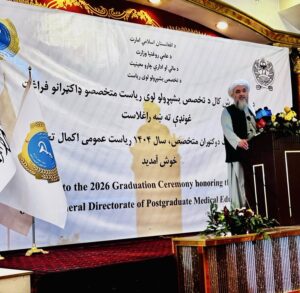KABUL/TEHRAN (SW) – In recent months, Afghan migrants in Iran have been facing a deepening crisis as government pressures escalate.
As tensions rise and policies tighten, the plight of Afghan migrants has become a focal point of concern.
According to statistics provided by Iranian authorities, approximately five million documented and undocumented Afghan migrants currently reside in Iran. Recently, reports from the country point out rising pressures and restrictions imposed on these migrants.
Following these pressures and restrictions, the expulsion of Afghan migrants from Iran has intensified in recent times. In some cases, the police have been reported to exhibit “inappropriate” behavior towards the migrants.
Instances of ‘harsh’ treatment by the Iranian police have recently surfaced on social media, sparking significant public reactions. Afghan migrants in Iran report facing severe challenges and living in constant fear and anxiety.
Ahmad, one such migrant who moved to Iran due to unemployment, says: “I have been an immigrant in Iran for a year and a half. There is ongoing oppression against Afghans in Iran; even those with passports and documents are not spared.”
Migrants claim that despite holding temporary documents, they are still often detained and mistreated by the police. They have attempted multiple times in recent years to obtain residency documents in Iran but have faced extortion and have not been provided with proper documentation.
Migrants are urging the de-facto government of the Islamic Emirate to address their issues. Sadar Mohammad, one of the migrants, says: “We expect our government to defend us. Why should our people suffer, be oppressed, and even killed?”
Fazluddin, another migrant, adds: “They arrest everyone and bind the migrants’ legs. Even those with passports and cards are taken to the police station and then to the detention camps. Some are rejected despite having cards, and some are released after being tortured.”
International relations experts argue that Iran is increasing pressure on Afghan migrants due to economic reasons. Noor Al-Rahman Saqeb, an international relations expert, comments: “In the past, Iran accepted both documented and undocumented migrants because it was economically beneficial and they were used for economic purposes. However, in the last three years, many Afghan citizens have transferred capital to Iran legally, and Iran wants this trend to continue.”
Despite the increasing pressures from the Iranian government on Afghan migrants, Salam Watandar sought responses and plans from the Islamic Emirate to address these issues. However, repeated contacts with the da-facto government spokespersons, the Ministry of Repatriations and Refugees (MoRR), and the Afghan Embassy in Tehran did not yield any responses.






